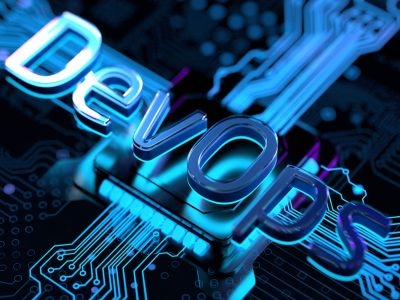In the fast-paced world of software development, artificial intelligence (AI) is changing how businesses build, deploy, and maintain applications. A new study explores how integrating AI into DevOps pipelines can revolutionize operations by predicting issues before they happen and automating repetitive tasks, leading to faster and more reliable software delivery.
Traditional DevOps practices — though effective — often rely on manual processes that are slow to detect and resolve problems. The paper proposes an AI-driven approach that uses machine learning to identify anomalies, natural language processing (NLP) to analyze logs, and reinforcement learning to optimize resource usage. Together, these technologies can drastically reduce downtime and improve system performance.
The framework uses tools like Jenkins, Docker, and Kubernetes, but enhances them with AI capabilities. In simulated environments, AI integration reduced the mean time to resolution (MTTR) by 40%, improved pipeline efficiency by 30%, and decreased resource waste by 25%. These improvements are not just theoretical. In real-world scenarios — like e-commerce platforms, hospital systems, and banking apps — AI-driven pipelines have helped prevent outages, speed up recovery, and strengthen system security.
One of the major highlights is the proactive nature of AI. Instead of reacting to issues, the system anticipates and addresses them before they escalate. For example, AI models can detect unusual behavior in transaction logs or forecast system overloads during peak periods and automatically take action to prevent failures.
Still, the adoption of AI in DevOps comes with challenges. Issues like data bias, system compatibility, and the need for transparency in AI decision-making must be addressed. The paper calls for more research to refine AI models and integration strategies, especially in industries like finance and healthcare where uptime and data security are critical.
Ultimately, AI is no longer a futuristic add-on — it’s becoming essential to staying competitive. As more organizations embrace this intelligent automation, the future of DevOps will be faster, smarter, and more resilient than ever before.
To request full publication, please visit: https://www.humanandai.tech/
References
- Alugunuri, N. (2025). AI-Driven DevOps Pipeline for Predictive Issue Resolution and Intelligent Automation.
- Forsgren, N., Humble, J., & Kim, G. (2018). Accelerate: The Science of Lean Software and DevOps. IT Revolution Press.
- Kim, G., Humble, J., Debois, P., & Willis, J. (2016). The DevOps Handbook. IT Revolution Press.
- Lwakatare, L. E., Karhu, K., & Oivo, M. (2019). Journal of Systems and Software, 157.
- Mehta, D. (2023). Foundational Tech Knowledge: EssentialTECH Foundations.
- Menzies, T., Pezzè, M., & Rombach, H. D. (2018). Computer, 51(11), 27–35.
- Rahman, A., Zhang, Y., & Thomas, P. (2023). Journal of Artificial Intelligence in Software Engineering.
- Zhang, Y., Wu, L., & Li, Z. (2023). Springer AI and Systems Engineering Journal.
- Additional references available in the original publication.
Media Contact
Company Name: Journalist and Authors Consulting
Contact Person: Shola Obajuluwa
Email: Send Email
Phone: 00 44 1708 20 6161
Address:4 St Mathews Close
City: Rainham
State: Essex
Country: United Kingdom
Website: https://www.journalistauthors.com






